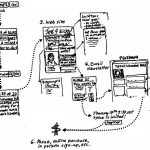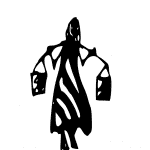Certifications, degrees, dependability, positive attitude… all good stuff. But it’s not enough.The most successful wellness businesses look for “broad shoulders” when they evaluate wellness staff.
Whether it’s your corporate wellness sales manager, membership director, fitness director, or receptionist, people with broad shoulders rise to challenges and do the things that strengthen your business and its relationships with your employees, your customers and even your suppliers.
Use this checklist when you’re hiring someone new, and pull it back out at performance review time:
The “Broad Shoulders” Checklist
1. Quick to take the initiative
Good employees see a need and tackle it, rather than waiting to be asked (or hoping to avoid being asked).
Example: your fitness center’s front-desk employee who notices that umbrellas always leave messy puddles by the front door and asks you to order an umbrella stand.
2. Demonstrates commitment to their job and your business
Commitment goes beyond dependability. Dependability just means that they show up on time when scheduled.
Example: The dietitian who decides to hold a “lunch and learn” for other employees because she realizes that they can do a better job with clients if they know a little more about what dietitians actually do.
3. Observant and curious about the business
People who are observant and curious about how the business works and why are valuable assets.
Example: The yoga instructor who notices that most students stop coming after just a few sessions – and chats with them to find out what she could do better.
4. Resourceful approach to their work
Resourceful people find ways to skillfully handle new situations, opportunities, and problems.
Example: The wellness coach who suggests videoconferencing to your new client as a more effective way to reach remote offices – even though your corporate wellness business hasn’t done it this way in the past.
5. Quick to spot improvement opportunities
Businesses are stuffed with small and big opportunities to do things better.
Example: The health club marketing manager who points out that your website isn’t producing sales leads that turn into customers – and has a plan for fixing it.
6. Ability to spot and resolve issues
Anticipating problems before they become nagging issues or expensive and time-consuming crises is critical in business. Avoid employees who are myopic and walk past “red flags” without even recognizing them.
Example: the physical therapist who notices huge puddles between your parking lot and the entrance to your wellness center that make it miserable for customers after even a mild rain shower – and works with the facility manager to come up with sensible solutions.
7. Affinity for customer satisfaction
People with an affinity for customer satisfaction intuitively “get it right”.
Example: When a health club member asks about the repair time on the television, the employee with an affinity for customer satisfaction says “That sounds frustrating…let me find out for you,” rather than simply saying, “I don’t know.”
8. Adaptable as business needs change
Businesses never stand still. You want employees whose approach to work and life is adaptable, not rigid.
Example: The nutritionist who’s excited about the opportunity to help your business development write a proposal for a corporate weight management program, rather than complaining that she’s already too busy.
9. Eager to share information
Great employees notice what matters – and share it with the right people. You’ve never driven a car without gauges, warning indicators or speedometers. Yet health and wellness businesses routinely hire and retain people who either hoard information – or simply never think to share it.
Example: The accountant who notices that you could save money if you consolidated office purchases with a couple of vendors.
10. Plays well with others
You want people in your business who genuinely enjoy being part of a team. They have an affinity for working well with other people, at all levels – and they detest people who “keep score”, snipe at others, and are hard to find when work needs to be done.
Example: The personal trainer who helps out at the front desk when a wave of customers suddenly shows up and wipes down equipment between clients.




